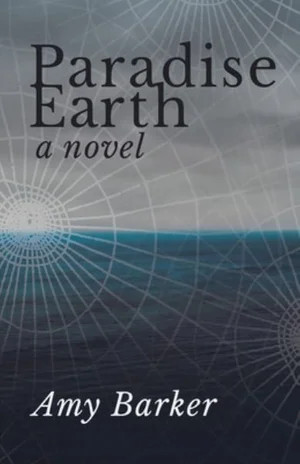Paradise Earth by Amy Barker

This new novel opens our eyes to the glorious beauty of the Tasman Peninsula, located in the southern regions of Australia, Amy Barker re-creating a world where the residents are aware of its violent past, seeking to address the issues that arose in the violence, while being determined to leave behind the ghastly memories of the killings. Twenty five years later, we learn about a 14 year old boy applying for a gun licence, and we learn about Marina, a woman who was at Port Arthur. Despite what she had witnessed, Marina is determined to acknowledge the past, while seeking to find a way to face the new world. She has returned to the Peninsula to clean up her mother’s home after her mother’s death. A meeting of shooters in the wetlands ironically coincides with a number of duck rescuers working in this area to save the local wildlife, as Marina considers her life decisions, Barker challenging us to consider how the local residents had found some level of peace, and were determined to preserve their world from further violence.
Placing the narrative in an area that has had a dramatic impact on the lives of the locals, an area that suffers deeply from the repercussions of the violence of the past, Amy Barker’s vivid narrative opens our eyes to how trauma can go on affecting lives, persuading us to see how that kind of past can be eased in the memory, so that people can begin to find a way to place peace at the heart of their lives, rather than to remain subsumed by trauma. A remarkable feature of Barker’s prose is her ability to take us into the world of contemplation, where nature is so vividly described, so beautiful, peaceful and alluring, that we, as human beings, are absolutely entranced by the natural world. One character, Ruth, states that this place settles ‘her mind, regulate(s) her heartbeat'.
This book would be suitable for adolescent and adult readers. Barker’s determination is to address the violence of the past, and its aftermath, while describing how we would recreate our world to be peaceful, to be preserved. Brilliantly composed, this narrative captivates the reader, challenging us to reflect on the way that humans sometimes choose to break away from decency and cause dreadful harm to others, yet, despite these characteristics, she assures us that many people find a way to work together to live good lives and to care for our much-endangered planet.
Themes: Homecoming, Port Arthur (Tasmania),Trauma.
Elizabeth Bondar